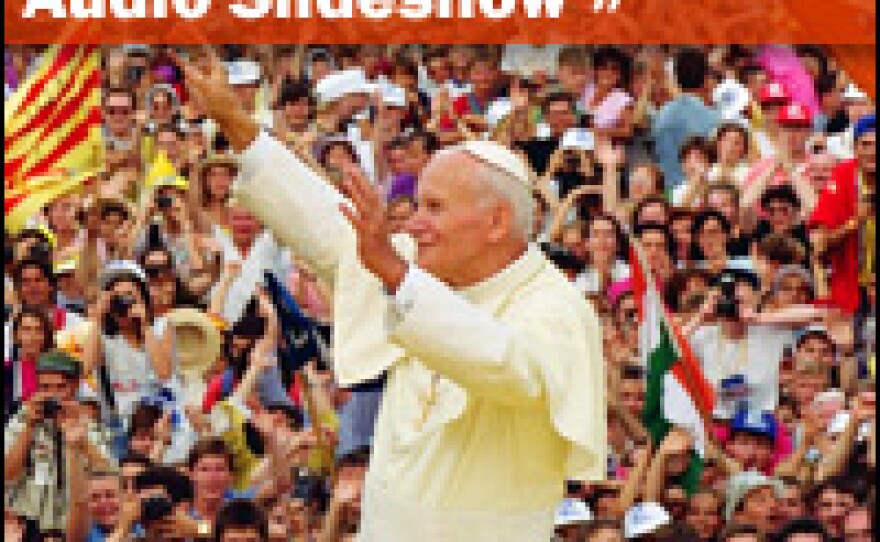Pope Benedict XVI arrives in the United States on Tuesday for his first papal visit. He comes with a reputation as a rigid enforcer of dogma, but the German-born pontiff may receive a much warmer welcome here than he has been getting in increasingly secularized Europe.
On the eve of his departure, Pope Benedict recorded a videotaped message: "As you know, I shall only be able to visit two cities: Washington and New York. The intention behind my visit, though, is to reach out spiritually to all Catholics in the United States."
Mario Marazziti, a leader of the Sant'Egidio lay Catholic community, says Benedict is a very well-informed student of American society.
"There is a very good feeling about how American society can be secular and at the same time respectful of all religions. I think this kind of balance is something that is very appealing to the feeling of the pope," Marazziti says.
Europe's Roots; America's Beacon
At the outset of his papacy, Benedict's focus was on reawakening Europe's Christian roots. He hoped the old continent would become the spearhead of a battle against what he calls the "dictatorship of relativism." But much of Europe rebuffed Benedict. The European Union constitution leaves out any reference to God, and same-sex marriage has been legalized in several countries.
Vatican expert Sandro Magister says that today, Pope Benedict looks to the United States as a beacon for more positive relations between religion and politics.
"Benedict sees the state of religion in America as healthier," Magister says through a translator. "There is separation between church and state there, but the public space allows religion to play an important role."
Pressing Concerns
The pope will meet President Bush and address the United Nations as it marks the 60th anniversary of the Declaration of Human Rights. He's likely to touch on some of his most pressing concerns — religious freedom, including the right of Muslims to convert to Christianity, and the plight of Christians fleeing persecution in the Middle East.
One of the major contrasts between the Vatican and the United States was the Holy See's vehement opposition to the war in Iraq. But Magister says that position has evolved since 2003.
"Vatican diplomacy today recognizes American troops in Iraq as peacekeepers, overseeing a responsible transition to democracy and defending the Iraqi people — including the unarmed Christian minority, which is living under siege," he says.
Tensions with Other Religions
Pope Benedict travels to the U.S. with a theologically conservative agenda, which has already caused tensions with other religions. He angered many Protestants with a document reasserting the primacy of the Roman Catholic Church above all other Christian churches. And relations with Jews have been strained over Benedict's reauthorization of the old Latin Mass that includes a prayer for Jews' conversion.
Vatican analysts say he is unlikely to change these positions in his interfaith meetings in the U.S.
Even many American Catholics disagree with Vatican teachings on issues such as the bans on contraceptives and abortion, priestly celibacy and the role of the laity.
But today, 39 percent of American Catholics are Hispanics — a community much more in tune with Benedict's conservative theology.
Magister says the Vatican is closely following this rapidly growing community.
"This is the brand of Catholicism that Benedict deeply wants to encourage and promote," he says.
Broaching 'Filth' in the Church
But the thorniest issue of the papal visit will be the sex abuse scandal that has undermined the American Catholic church morally and financially.
As Cardinal Joseph Ratzinger, he spoke forcefully against the "filth" in the church, and Vatican officials have said Benedict will address the scandal "to seek a path toward healing and reconciliation."
But despite a request from two American cardinals, the Pope is not planning to meet with victims. And their expectations for a papal apology are likely to go unfulfilled.
Copyright 2022 NPR. To see more, visit https://www.npr.org. 9(MDAzMjM2NDYzMDEyMzc1Njk5NjAxNzY3OQ001))







